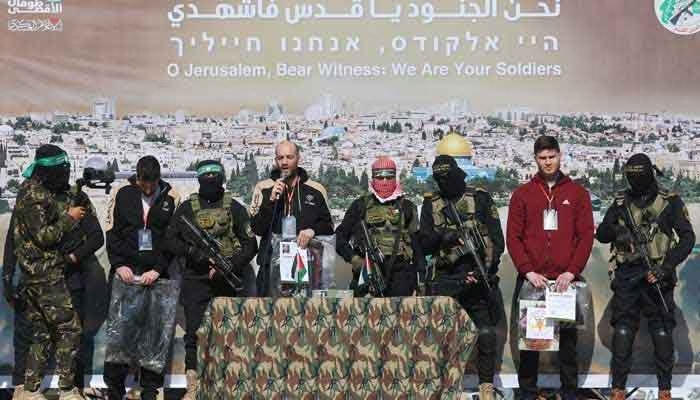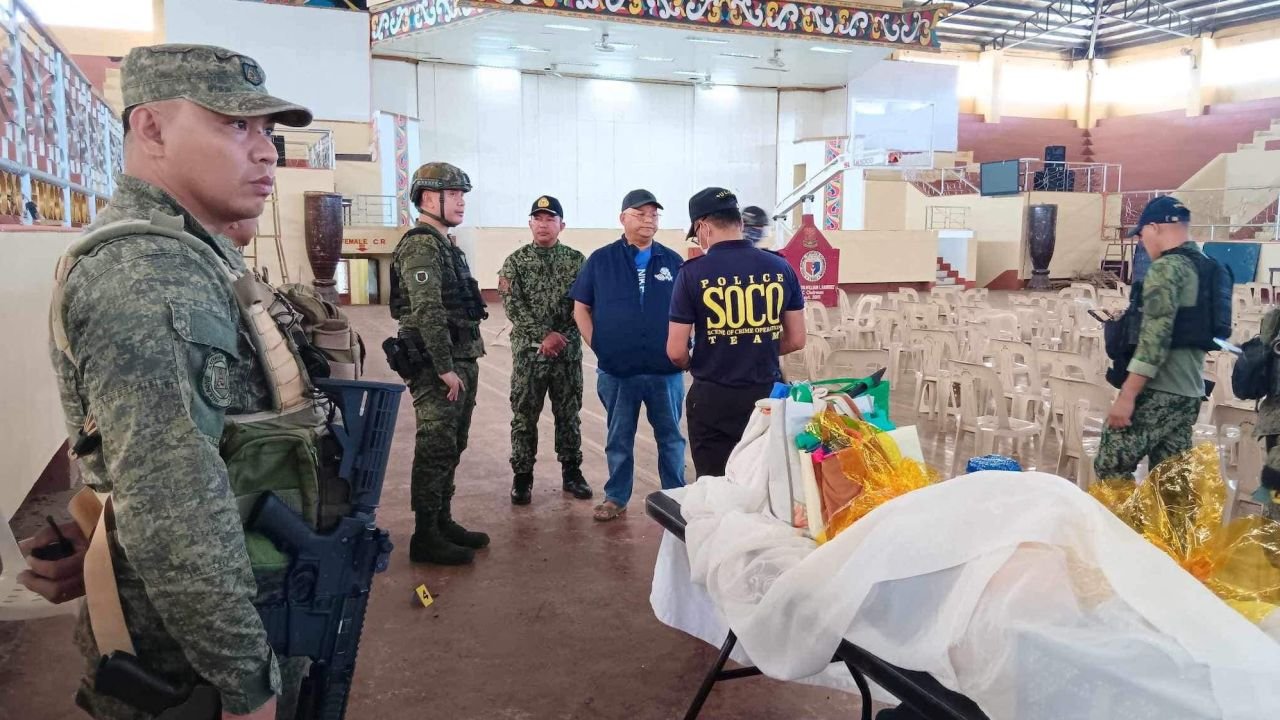The Palestinian resistance movement Hamas has released three more Israeli hostages as part of the ongoing ceasefire agreement in Gaza. This latest development is seen as a crucial step in maintaining the fragile truce between Hamas and Israel.
Hostages Handed Over to the Red Cross
According to Arab media reports, the three Israeli hostages were formally handed over to the Red Cross in Khan Younis, Gaza. A representative from the Red Cross officially signed documents confirming the release, marking another milestone in the prisoner exchange process.
The Red Cross has been playing a vital role in facilitating the safe transfer of hostages, ensuring that the exchange occurs under internationally recognized protocols. The hostages are expected to be taken for immediate medical evaluations before being reunited with their families.
The Ceasefire Agreement: A Balancing Act
The ongoing truce between Hamas and Israel has been marked by a series of negotiations and diplomatic interventions. Under the ceasefire agreement, Hamas and Israel have agreed to a structured exchange of prisoners.
As part of the deal, Israel has committed to releasing 369 Palestinian prisoners in exchange for hostages held by Hamas. The exchange is seen as a confidence-building measure aimed at de-escalating tensions in the region.
Challenges and Delays in Implementation
The ceasefire agreement has faced several challenges, with reports of violations from both sides. Previously, Hamas temporarily suspended the hostage release process, citing Israel’s failure to uphold certain terms of the truce. However, diplomatic efforts by Egypt and Turkey helped mediate the situation, allowing the exchange process to resume.
Despite the efforts to maintain peace, tensions remain high. Israel has been accused of not fully adhering to the agreement’s terms, while Hamas has been criticized for using hostages as leverage in political negotiations.
International Response to the Exchange
The latest hostage release has drawn mixed reactions from the international community. Human rights organizations have welcomed the move, emphasizing the need for both sides to adhere strictly to the terms of the ceasefire.
The United Nations and other international bodies continue to push for a more permanent resolution to the conflict. However, given the volatile situation, there are concerns about whether the ceasefire will hold in the coming days.
What Comes Next?
With more hostages still held by Hamas and additional Palestinian prisoners yet to be released, the coming weeks will be critical in determining the future of the ceasefire. Diplomatic efforts will play a key role in ensuring that both sides stick to the agreed-upon terms.
Observers are closely watching the situation, as any breach of the agreement could lead to renewed hostilities. For now, the latest release provides a glimmer of hope for those waiting for their loved ones to return home.
The Gaza ceasefire agreement remains a delicate process, requiring continuous negotiations and international mediation. The release of three more Israeli hostages is a step in the right direction, but long-term peace will depend on sustained efforts from both Hamas and Israel.
As the world watches, the hope remains that further negotiations will lead to lasting stability in the region, bringing an end to years of conflict and suffering.



